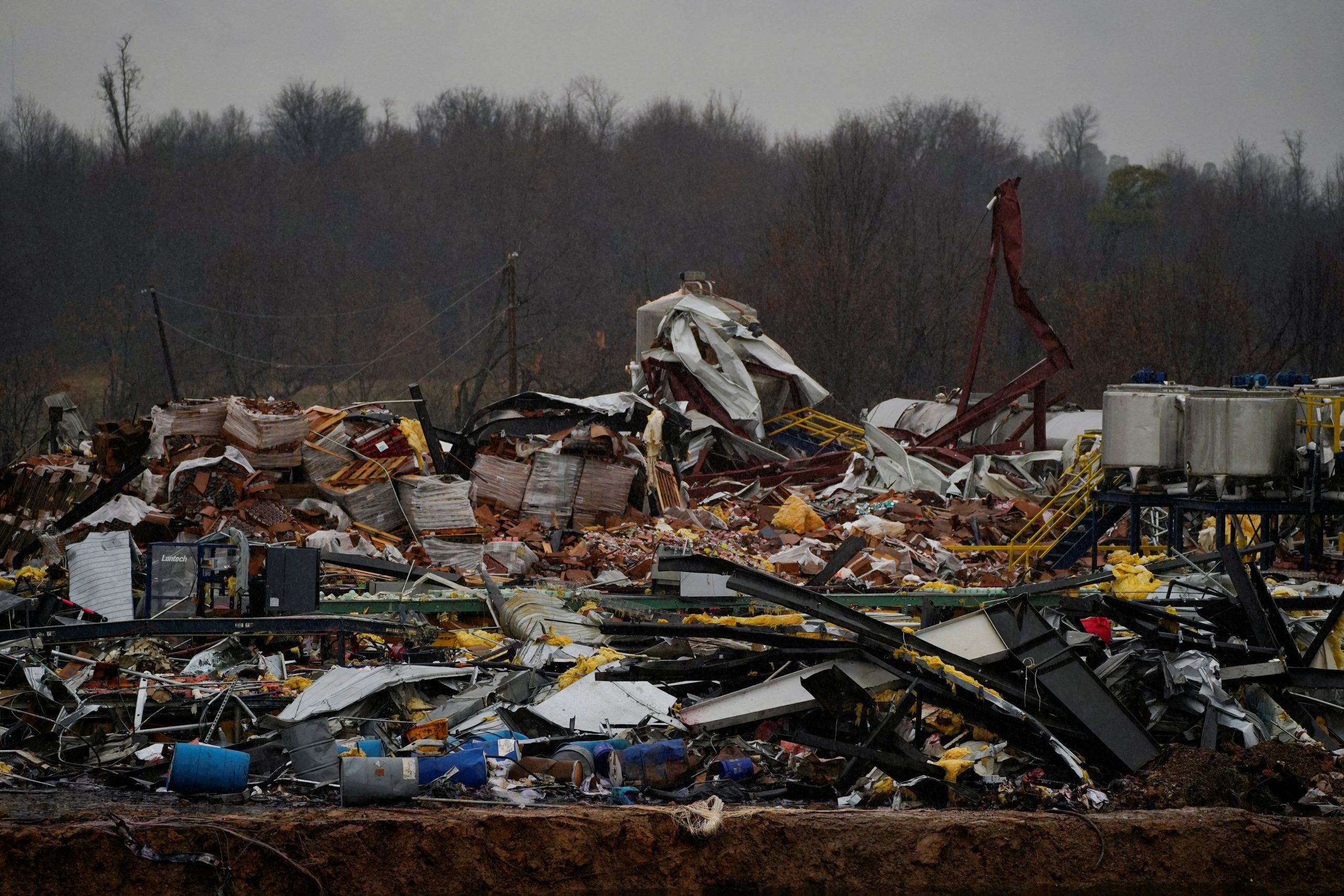
Lauren Moye, FISM News
[elfsight_social_share_buttons id=”1″]
Faith organizations continue to provide crucial aid in communities shredded by devastating tornadoes on Dec. 10. The storm system heavily impacted Midwestern states as it cut a path across 200 miles of land.
Christians across different denominations and non-denominational faith-based organizations have mobilized relief teams and supplies to the storm-hewn states of Arkansas, Illinois, Kentucky, and Tennessee. In doing so, they have heeded the wisdom of Hebrews 13:16, which reads, “And do not forget to do good and to share with others, for with such sacrifices God is pleased” (NIV).
Two notable responses are the United Methodist and Southern Baptist (SBC) denominations, both of which utilize regional teams under the umbrella of respective national organizations. This allows the denominations to recruit and train their response teams within the communities of individual churches. The national organizations, meanwhile, helps gather the resources and supplies to support deployed teams.
Although the storms heavily damaged or destroyed numerous Methodist church buildings, as was the case with Mayfield First United Methodist Church in Kentucky, the denomination’s storm-impacted congregants remain a bright light and crucial part of relief efforts. Some church buildings still standing have taken to feeding the community and out-of-state volunteers, like Leachville First United Methodist Church in Arkansas. The local church in Madisonville, Kentucky, found use as a Red Cross shelter for displaced community members.
The Methodist denomination also reports that early disaster relief teams have been deployed into the state from other U.S areas. They urged eager church members not to self-deploy to the area.
“The United Methodist connectional system is shining very brightly in this situation,” Jim Morse, the disaster relief coordinator for the Kentucky Conference said. “The problem is everyone wants to jump in and do something. That’s admirable, and very appreciated. But we’re still in the rescue phase.”
The rescue phase means that relief efforts are focused on damage control, providing food, showers, shelter, and generators.
Among the SBC relief efforts is an unlikely source: the pastor and congregants of Mayfield’s First Baptist Church. Although the church building was damaged by the same tornado that took out the well-reported candle factory, church members organized three response teams, one of which focused on providing aid and assistance to the wider Mayfield community.
“It’s easy to serve the Lord when things are good,” church pastor Rev. Wes Fowler said to the Associated Press. “It’s more challenging to serve him when times are bad, and I think that’s really when people are looking to see if our faith is genuine, if our faith is true.”
The SBC reported that teams from Louisiana, Missouri, and Texas have mobilized to meet needs in the state of Kentucky.
Additionally, Missouri and Tennessee are serving parts of their own state that were impacted by the storm system while Oklahoma teams have started aid in Arkansas. Collectively, SBC Disaster Relief teams make for the third-largest response organization in the U.S.
The Presbyterian Disaster Assistance National Response Team reported on Dec. 16 that they were on the ground in Kentucky.
The organization requested denominational members provide cash donations to the relief efforts, noting that this allows for more flexibility in responding to community needs. Rev. Jim Kirk, an associate with the team, anticipates many of the communities needing volunteers for a long time to help them rebuild. It’s a need also expressed by the Methodists and SBC.
“It’s challenging to restore a community,” Kirk said. “To rebuild homes, we have plans for that. But how do you rebuild an entire community that lost infrastructure, businesses, jobs?”
Other Christian-affiliated organizations that have responded to the Dec. 10 disaster areas include Samaritan’s Purse, the Salvation Army, Churches of Christ Disaster Relief Effort, and Christian Appalachian Project.
